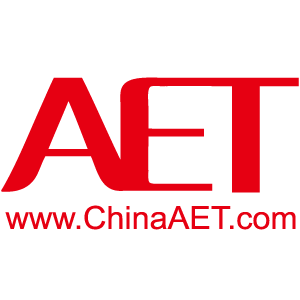《電子商務協議》文本下我國數據跨境流動規則的檢視與完善
網絡安全與數據治理
何云富,趙慶超
西南民族大學法學院
摘要: WTO電子商務談判的目標是在現有的協定與框架基礎上,建立高標準的國際電子商務規則。2024年7月6日,電子商務談判達到了新的里程碑,達成了一個穩定的《電子商務協議》文本。《電子商務協議》文本中的數據跨境流動規則圍繞著個人數據保護和例外條款構建,以協同治理為理念,流動性優化為準則,限制流動為例外。我國的數據跨境流動規則平衡發展與安全的理念能夠與《電子商務協議》文本的建構理念相契合;我國數據存儲本地化和數據出境制度能夠滿足《電子商務協議》文本個人數據保護條款和相關例外條款的規定,數據跨境流動規則能夠與《電子商務協議》文本相協調。但是,需要對國家重要數據目錄進行改進和完善。
中圖分類號:D922.294文獻標識碼:ADOI:10.19358/j.issn.2097-1788.2025.08.007
引用格式:何云富,趙慶超. 《電子商務協議》文本下我國數據跨境流動規則的檢視與完善[J].網絡安全與數據治理,2025,44(8):46-52.
引用格式:何云富,趙慶超. 《電子商務協議》文本下我國數據跨境流動規則的檢視與完善[J].網絡安全與數據治理,2025,44(8):46-52.
Review and refinement of China′s cross-border data flow rules under the E-Commerce Agreement framework
He Yunfu, Zhao Qingchao
Law School, Southwest Minzu University
Abstract: The goal of the World Trade Organization(WTO) e-commerce negotiations is to establish high-standard international e-commerce rules on the basis of existing agreements and frameworks. On July 6, 2024, the e-commerce negotiations reached a new milestone, and a stable text of the "E-Commerce Agreement" was reached. The rules on cross-border data flow in the text of the "E-Commerce Agreement" are constructed around the protection of personal data and exception clauses, taking collaborative governance as the concept and liquidity optimization as the principle, with restricted data flow being the exception. The concept of balancing development and security in China′s rules on cross-border data flow can be in line with the construction concept of the text of the "E-Commerce Agreement"; China′s data storage localization and data outbound system can meet the provisions of the personal data protection clauses and relevant exception clauses in the text of the "E-Commerce Agreement", and the rules on cross-border data flow can be coordinated with the text of the "E-commerce Agreement". However, it is necessary to improve and perfect the catalog of important national data.
Key words : E-Commerce Agreement; cross-border data flows; personal data protection
引言
在全球化時代,數據增長迅猛,國際數據公司(IDC)預測,到2028年全球數據量將增長至393.8 ZB,相比于2018年增長9.8倍。數據作為新的生產要素在流動中產生價值也必然具有外部性,數據治理因此成為促進數字貿易健康發展的題中應有之義。然而,全球數據治理問題突出,難以達成共識,這與全球經濟依賴數據驅動的現狀不相匹配,致使難以完全發揮數據的生產要素驅動作用。2019年,76個世界貿易組織(World Trade Organization,WTO)成員正式啟動與貿易相關的電子商務談判,目標是在現有的協定與框架基礎上,建立高標準的國際電子商務規則。但因成員眾多,利益不同,談判進展緩慢。在數據跨境流動、數據本地化、電子傳輸免關稅、源代碼披露和算法公開等問題上,各國立場仍然存在顯著分歧。截至2024年7月,共有91個WTO成員參與了電子商務談判,并達成了一個穩定的《電子商務協議》文本(以下簡稱《協議》文本)。數據跨境流動議題作為各方面關注的核心問題,被認為是談判面臨最大挑戰[1]。本文基于WTO電子商務談判取得的最新成果,依據《協議》文本數據跨境流動相關規定,對我國的數據跨境流動規則展開審視,探尋限制數據跨境流動舉措在《協議》文本框架下的合法依據,進而推動相關規則的完善。
本文詳細內容請下載:
http://m.xxav2194.com/resource/share/2000006650
作者信息:
何云富,趙慶超
(西南民族大學法學院,四川成都610041)

此內容為AET網站原創,未經授權禁止轉載。

